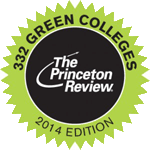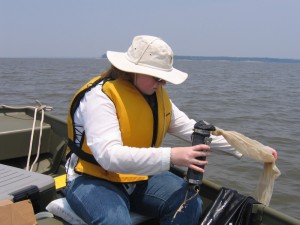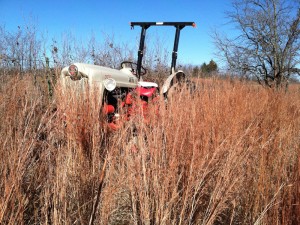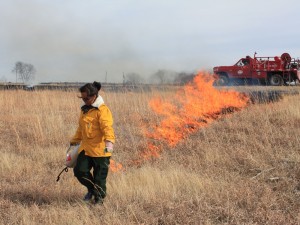
Professor of Biology and Environmental Science
Director, Center for Environmental Studies
Director, Sneed Prairie Restoration
Biology / Academic
- Office:
- IDEA Center 258
- Mailbox:
- 61588
- Phone:
- 903.813.2284

Interests | Courses | Publications | Curriculum Vitae | Links
Interests
Our lives of material ease depend upon free services provided by the natural functioning of intact ecosystems (take a breath) and massive quantities of fossil fuel energy. But we are burning through those fossilized products of ancient photosynthesis, fouling the planet in the process, and destroying the ecosystems upon which we and all other living creatures depend. The future is hard to predict, but the status quo is not in the interest of future generations. Unlike us, members of future generations will not have fossil fuels, but like us – and all other species – our descendants will require intact ecosystem services.
Those of us with the luxury to ponder these things owe it to future generations, to the half of our fellow humans who live on less than $2 per day, and to other species, to find a way out. Otherwise, grinding poverty will persist, our fellow species will continue to be driven extinct, and our descendants will inherit an even more depleted, degraded planet. This is not the first challenge humans have ever faced, but it is a big one and it will not fix itself.
My biology and environmental studies courses attempt to help Austin College undergraduates understand this challenge and the opportunities it presents.
I recently published the book Obstacles to Environmental Progress: A U.S. Perspective to forewarn readers about obstacles they are likely to encounter as they combat environmental problems, and hopefully, therefore, make the obstacles a bit easier to overcome. The book is freely available (open access) from University College London Press.
From the book website:
‘I have never come across another book that gives students such an accessible and helpful guide to the broad scope of the challenges facing an environmentally sound and sustainable future.’ -Al Wurth, Lehigh University
‘We’ve long needed something like this: a gazetteer for answering the endless series of objections and overcoming the repetitive obstacles that stand between us and the environmental progress we urgently require.’ -Bill McKibben, author of The End of Nature and founder of 350.org and Third Act
‘This deeply thoughtful, open-access volume is easy to read but profoundly disturbing and only slightly encouraging, a book to energize the environmental movement…Highly recommended. All readers.’ –CHOICE Connect
I have directed Austin College’s Center for Environmental Studies since 2000. The Princeton Review recognizes AC as a Green College. We use wind-generated electricity and have reduced our greenhouse gas emissions almost 60% since 2008 despite the addition of several new buildings.
Most of my prior research has been in zooplankton ecology, but my students and I presently work on ecosystem restoration, specifically tallgrass prairie restoration at Austin College’s Sneed Prairie. The Sneed Prairie project received the 2020 State of Texas Environmental Excellence award in the Education category.
You are welcome to contact me at 903.813.2284.
Courses
Evolution, Behavior and Ecology (BIOL 115)
This course introduces the basic concepts of evolution, ecology, and animal behavior. All upper-level biology courses at Austin College build upon this course and its successor, Cell Biology (Biology 116).
Conservation and Restoration Ecology (BIOL 259)
This course offers an introduction to conservation and restoration ecology based on hands-on conservation and restoration experiments couched in ecological ideas and theory. Course assignments hone abilities to analyze data, draw appropriate conclusions from data, and report on scientific results.
Prairie Restoration (ENVS 100)
This January-term course provides an opportunity to engage in the actual work of ecological restoration. Fieldwork focuses upon restoring native vegetation to Austin College’s Sneed Prairie. Readings, discussions, and lectures address prairie ecology, the history of the North American prairie, the consequences of prairie destruction, the techniques of prairie restoration, appropriate targets for restoration efforts, and ethical considerations in restoration work.
Fundamentals of Environmental Studies (ENVS 135)
A desire to solve existing environmental problems and avoid future problems motivates the field of environmental studies. (In this context, we define environmental problems as problems that result from interactions between humans and the natural environment.) This course provides a conceptual framework for understanding and analyzing environmental problems, an introduction to the scientific basis of selected environmental problems, and an introduction to efforts to find solutions to environmental problems.
Environmental Policy (ENVS 379)
This course examines environmental law and policy, especially US federal laws and policies. The course covers the history and current state of U.S. environmental policy and political forces and factors involved in the resolution (or failure to resolve) major environmental issues.
Environmental Solutions (ENVS 389)
Students enrolled in this course develop proposals to reduce Austin College’s environmental impact. In the process, they identify and answer critical questions about present operations and potential alternatives, identify and critically evaluate concepts and information relevant for devising improvements, and consider proposed solutions from various perspectives. Students critique each other’s draft proposals, work collaboratively to refine proposals, and present proposals to college officials, both in writing and in public presentations. Review of other organizations’ efforts to achieve environmental progress and study of common obstacles to environmental progress complement proposal development.
Publications
WORKS IN PREPARATION
High inter-replicate variation in experimental ecosystem management: the first 20 years of the Sneed Prairie restoration (tentative article title)
BOOK
 Schulze, P.C., 2022. Obstacles to Environmental Progress: A U.S. Perspective, University College London Press. Download the free PDF. |
TEDx TALK
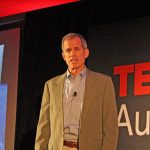
September 23, 2017
EDITED VOLUMES
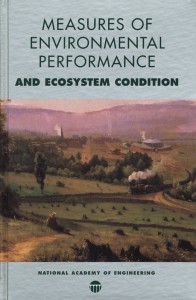 Schulze, P.C. (editor), 1999, Measures of Environmental Performance and Ecosystem Condition. National Academies Press. Download the Free PDF. |
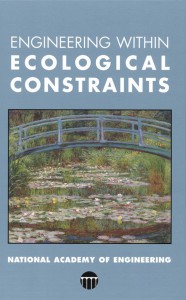 Schulze, P.C. (editor), 1996, Engineering Within Ecological Constraints. National Academies Press. Download the Free PDF. |
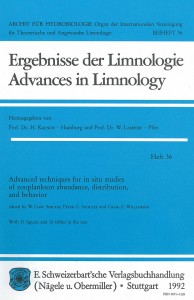 Sprules, W.G., P.C. Schulze, & C.E. Williamson (editors), 1992, Advanced Techniques for in situ Studies of Zooplankton Abundance, Distribution, and Behavior. Archiv für Hydrobiologie / Advances in Limnology 36, 140 p. Visit the Publisher’s website. Sprules, W.G., P.C. Schulze, & C.E. Williamson (editors), 1992, Advanced Techniques for in situ Studies of Zooplankton Abundance, Distribution, and Behavior. Archiv für Hydrobiologie / Advances in Limnology 36, 140 p. Visit the Publisher’s website. |
RECENT PAPERS — Italicized names indicate Austin College alumni (email pschulze@austincollege.edu to request copies)
Schulze, P.C. (2011) Evidence that fish structure the zooplankton communities of turbid lakes an reservoirs. Freshwater Biology, 56:352-365.
Schulze, P. C., K. J. Wilcox, A. Swift, and J. L. Beckert. (2009) Fast, easy measurements for assessing vital signs of tall grassland. Ecological Indicators 9:445-454.
Schulze, P.C., J.H. Gillespie, J.R. Womble, and A.F. Silen. (2006) The effect of suspended sediments on Lake Texoma Daphnia: field distributions and in situ incubations. Freshwater Biology 51:1447-1457.
Diggs, G. M. Jr. and P. C. Schulze. (2003) Soil-dependent fire frequency: a new hypothesis for the distribution of prairies and oak woodlands/savannas in North Central and East Texas. Sida 20:1137-1151.
Schulze, P.C. I = PBAT. (2002) Ecological Economics. 40:149-150.
Schulze, P.C. and J. Mealy. (2001) Population growth, technology and tricky graphs. American Scientist 89:209-211.

